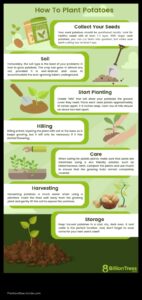Explore innovative ways to incorporate lemon grass into your garden or home with these creative planting ideas. From decorative containers to companion planting, discover how to make the most of this versatile herb.
Container Gardening
When it comes to container gardening with lemon grass, the possibilities are endless. You can unleash your creativity by utilizing various containers to grow this versatile herb both indoors and outdoors. From traditional pots to hanging baskets and charming window boxes, there are plenty of options to choose from. Experimenting with different sizes and materials can not only enhance the visual appeal of your garden but also provide a unique touch to your space. Imagine the burst of freshness and fragrance that lemon grass can bring to any corner of your home, all thanks to the magic of container gardening.

Companion Planting
When it comes to companion planting with lemon grass, the key is to choose plants that not only coexist harmoniously but also offer mutual benefits.
Here are some popular companion plants that complement lemon grass:By strategically pairing lemon grass with certain herbs and flowers, you can create a thriving ecosystem in your garden while enhancing the flavor and growth of your plants..
- Basil: Known for its aromatic leaves, basil not only pairs well with lemon grass in the kitchen but also helps repel pests like mosquitoes and flies.
- Lavender: This fragrant herb not only adds a pop of color to your garden but also attracts pollinators while deterring pests like moths and fleas.
- Mint: Mint is a versatile herb that thrives alongside lemon grass and acts as a natural pest deterrent, keeping common garden pests at bay.
By incorporating these companion plants into your garden alongside lemon grass, you can create a balanced and flourishing environment that benefits both your plants and your overall gardening experience.
Vertical Gardening
Vertical gardening opens up a world of possibilities for maximizing space and adding a touch of greenery to any environment. By utilizing vertical structures, you can create a stunning display of lemon grass that not only enhances the aesthetics but also provides practical benefits. Whether you opt for a green wall or a trellis, the key is to design a support system that allows the herb to thrive in a vertical orientation.
When embarking on vertical gardening with lemon grass, consider the following tips to ensure successful growth:
- Choose a sturdy structure that can support the weight of the herb as it grows.
- Position the plant in a location that receives adequate sunlight for healthy development.
- Regularly water the herb, ensuring that excess moisture can drain properly to prevent root rot.
- Prune the lemon grass as needed to maintain its shape and encourage new growth.
By incorporating lemon grass into your vertical garden, you not only add a visually appealing element but also create a functional and space-saving solution for growing this versatile herb.

Herbal Tea Garden
Create a tranquil oasis in your garden with a dedicated featuring the aromatic essence of lemon grass. This delightful herb is a key ingredient in crafting refreshing and flavorful herbal teas that not only tantalize your taste buds but also promote relaxation and wellness. To get started on your herbal tea journey, consider the following tips:
- Harvesting and Drying: Snip the fresh leaves of lemon grass for drying, ensuring they are free from moisture. Once dried, store them in airtight containers to preserve their flavor.
- Brewing Techniques: Experiment with different brewing methods to extract the maximum flavor from the lemon grass leaves. Whether you prefer hot or cold tea, lemon grass adds a zesty twist to your brew.
- Health Benefits: Discover the numerous health benefits of lemon grass tea, from aiding digestion to boosting immunity. Sip on a cup of this herbal infusion to unwind and rejuvenate.
Repurposed Planters
When it comes to adding a unique touch to your garden, repurposing everyday items as planters for lemon grass can bring a creative flair to your outdoor space.
Let’s explore some inspiring ideas to repurpose planters for lemon grass:By upcycling items like tin cans, wooden crates, or old furniture, you not only give a new life to these objects but also create a one-of-a-kind look for your garden..
- Transform old tin cans into charming planters by painting them in vibrant colors or decorating them with patterns.
- Repurpose wooden crates as rustic planters for a farmhouse-inspired garden theme, adding a touch of vintage charm.
- Give new life to old furniture pieces like drawers or chairs by converting them into unique planters for lemon grass, creating a whimsical garden display.

Indoor Herb Garden
Indoor herb gardens offer a convenient and accessible way to enjoy fresh herbs year-round, even in limited space. Whether you have a small apartment or a spacious kitchen, growing lemon grass indoors can add a touch of freshness and flavor to your culinary creations. To create a successful indoor herb garden with lemon grass, consider the following tips:
- Lighting: Lemon grass thrives in bright, indirect light. Place your indoor garden near a sunny window or supplement with grow lights to ensure proper growth.
- Container: Choose a well-draining pot or container with sufficient drainage holes to prevent waterlogging. Opt for a larger container to accommodate the herb’s root system.
- Soil: Use a well-draining potting mix rich in organic matter. Consider adding perlite or sand to improve drainage and prevent root rot.
- Watering: Keep the soil consistently moist but not waterlogged. Water when the top inch of soil feels dry to the touch, adjusting based on the plant’s needs.
- Temperature and Humidity: Lemon grass prefers warm temperatures between 65-85°F (18-29°C) and moderate humidity levels. Avoid placing near drafts or heating vents.
By following these indoor gardening tips, you can successfully cultivate lemon grass indoors and enjoy its fresh aroma and flavor throughout the year.
Sensory Garden
Design a sensory garden with lemon grass to engage all five senses. Explore the textures, scents, and flavors of this herb while creating a tranquil and immersive outdoor space that promotes relaxation and mindfulness.
Frequently Asked Questions
- Can lemon grass be grown indoors?
Yes, lemon grass can be successfully grown indoors year-round, provided it receives adequate sunlight and water. Consider placing it near a sunny window or using grow lights to ensure proper growth.
- What are some companion plants for lemon grass?
Companion plants that pair well with lemon grass include basil, lavender, and mint. These plants not only complement each other but also help deter pests naturally.
- How can lemon grass be used in herbal tea?
Lemon grass leaves can be harvested and dried to make a refreshing herbal tea. Simply steep the dried leaves in hot water to enjoy a soothing and aromatic beverage.
- Wild Rose Country: Exploring Untamed Beauty - July 15, 2024
- Wildflower Nursery Decor: Bringing Nature Indoors - July 15, 2024
- Young Sprout of Grass: Nurturing New Life - July 15, 2024








